Veeam CEO Ratmir Timashev On Selling N2WS And Pushing AWS, Azure Backup Leadership
‘We believe three markets are going to be huge: Office 365, AWS backup, and backup of Azure. All native cloud native backups. Each of these markets will become, for us, maybe half-a-billion-dollar opportunities in the next five years,” says Veeam CEO Ratmir Timashev.

Aiming Big For The Cloud
While it is common to think of Veeam as the pioneer in developing technology for protecting data in VMware environments, the truth is the Baar, Switzerland-based company was maybe the third vendor to enter that market and did such a good job that it seems like it was first, according to CEO Ratmir Timashev.
Not being first, but instead bringing out the right capabilities when the market is ready, is the keystone of Veeam's innovation strategy, and is seen in the company's current approach to protecting data in Amazon Web Services, Microsoft Azure, and Kubernetes environments, Timashev told CRN in a wide-ranging discussion late last month.
Timashev also discussed Veeam's purchased of N2WS, a developer of data protection technologies for AWS environments, and the subsequent sale of that company in the face of U.S. government concerns, and told CRN that because the N2WS acquisition was walled off within Veeam during the short time is was part of Veeam, Veeam independently developed its own AWS data protection capabilities.
Next for Veeam? A big push into data management rather than data protection as a way to help customers better take advantage of their increasing mounds of data, Timashev said.
For details on these and other topics and on what to expect from Veeam going forward, turn the page.

Veeam recently sold N2WS, a cloud technology provider it purchased just under two years ago. What was the thinking behind the original purchase, and what happened that made Veeam have to sell it?
The idea to purchase it was to add the AWS native backup capability to our platform. Additionally, we invested in the company three years ago to help them to grow, and then realized that probably an acquisition made sense. Still it was a separate R&D, separate organization, everything is separate, separate sales and marketing. Because we wanted to see how they do on their own.
Then there was a request from the US government about [several] different questions. Through those discussions, we realized that we would like to sell it so that it's not part of Veeam, and focus on our own solutions. That is what we have done with our own cloud-native AWS native solution [introduced in] December of this year.
So Veeam's AWS cloud backup technology was developed independently of what you expected to get from N2WS?
Yes, exactly. It has been developed totally independently in-house. Again, we never had access to [N2WS'] R&D. Everything, we kept separate. So the divestiture was easy because it was a separate company. We just sold it to back to the original founders and focused on building our own solution. Our own solution is better integrated with the Veeam platform because it's built by the same people, same R&D people, same product management people. So it was the right way to integrate with the Veeam platform, and as such will provide advanced capabilities not only to capture AWS [data] to AWS but be able to back up AWS to on-prem and also restore anywhere, to Azure, to VMware, to physical servers, and so on. So it's an extra value because now not only will it help to protect natively your AWS workloads, but also in case you need it, to move data back on-prem or to another cloud. So it kind of provides you additional capabilities in terms of avoiding cloud lock-in, not only vendor lock-in, but vendor and cloud lock-in, so that's extra value.

If you were already developing your own offering, then why were you looking at the N2WS?
When we invested in N2WS and then when we acquired it, we were not developing our own. We developed it relatively quickly. We developed our own solution in the last six months. When we made the decision that we were going to spin off N2WS back to the original founders, we started the development. And in the last six months, we developed our own solution because we already learned so much in the last three years in terms of what cloud-native backup is, what object storage is, what blob storage is, what EC3 storage is. We already knew so much about cloud, it didn't take us long to develop our own solutions.
Does Veeam still have an equity stake in N2WS?
No.
So what was what was the U.S. government concerned about? Is it the fact that Veeam has an operations and Russia?
We don't comment on that.
The only thing I want to mention is that the decision to sell N2WS back to the original founders was our own voluntarily decision. We were not forced to do it.
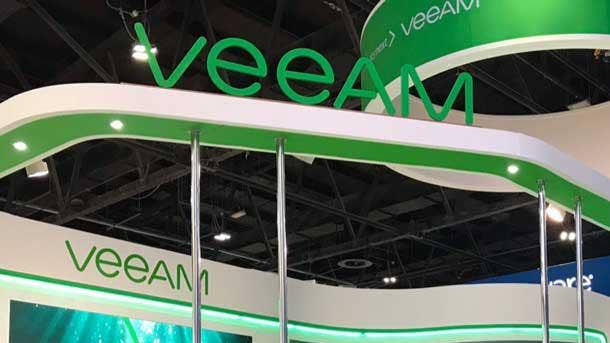
There's a there's been a lot of talk in the industry about changing the focus from data protection to data management. What is Veeam doing in that area? Do you see a difference between data protection and data management, and what have you been doing in response?
That's a great question because those are the discussions that we have constantly internally. How we define the new market, which we want to define as being called cloud data management. By cloud, we mean on-prem, private cloud, public cloud, hybrid cloud. The keywords are cloud data management. We believe that the first fundamental thing in cloud data management is backup and recovery, and we are doing that absolutely great. What else do customers need? They have the budget to modernize their IT, which means deploying hybrid clouds, because modernizing IT means also leveraging public clouds. Those are strategic initiatives: modernize IT, deploy hybrid cloud, and modernize the backup. They don't have budgets for cloud data management. They don't have budget for data management. [But] they have the budget to modernize their data.
But once they start modernizing the backup, the next question [is] why Veeam is the best to help them to modernize their backup and recovery. Data has grown so much and the recovery SLAs are so strict these days, and Veeam is capable to meet all these business requirements in terms of data recovery, disaster recovery, and business continuity. But the next question after that is, okay, I understand how Veeam helps me to modernize backup. But can Veeam also help me to move to a hybrid cloud? Customers don't have the budget for tools for moving hybrid cloud, but they expect their backup vendor to help migrate to hybrid clouds.
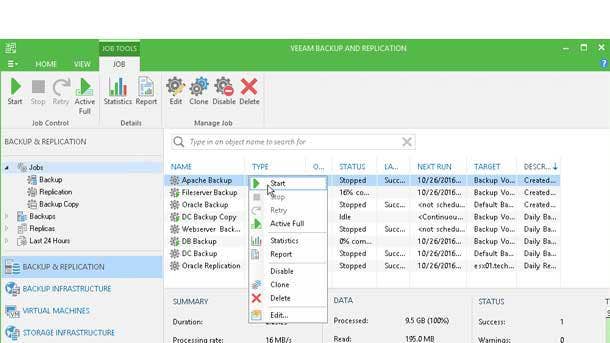
What comes after that?
We're helping [customers] to manage the data, to move the data, with things such as cloud mobility and cloud tiers which because of cloud mobility gives us the ability to back up here and restore anywhere, or back up there and restore here. Eventually we will orchestrate and automate that movement. It's almost like, you know that a hurricane is coming through artificial intelligence. It feeds into the system, and automatically orchestrates the movement of workloads from that AWS zone that is in the hurricane area to somewhere else. So it's all about eventually automating and orchestration. We have this capability.
Anything else?
[Cloud data management] includes data archival, endpoint management, e-discovery, security, and compliance. Veeam is not a security company, not a GDPR company, not a compliance company. But we help a lot with the security. So we help with some basic capabilities. Or we help with GDPR compliance. We are not a compliance company, so we don't provide a [complete compliance] solution, but we help you.
Veeam helps companies deploy or be confident when they move into hybrid cloud in three ways. First, we can back up your VMware or physical servers, and restore into AWS. Second, we help you to be confident. Because if I'm using Veeam for my on-prem, and I love Veeam, I trust Veeam, I will feel much more comfortable to move some new workloads and applications if now Veeam also protect those workloads, right? So Veeam adds confidence in moving in hybrid cloud. And the third is, Veeam helps me to avoid vendor lock-in. I'm more confident to move data to AWS or Azure knowing that if AWS or Azure increases the price, or the cost goes out of control, I can move the data back.
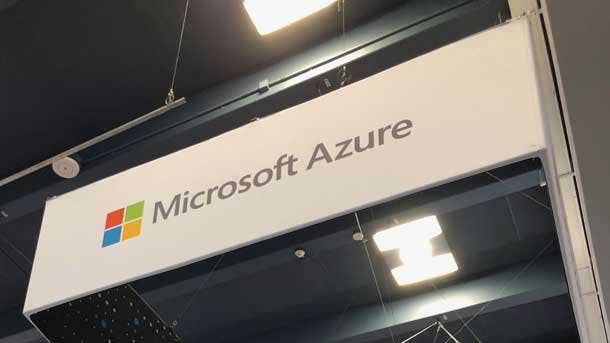
You talked a lot about AWS, and you mentioned Azure as well. Do you do a lot with Azure, or is AWS your primary cloud partner?
No. AWS and Azure are equal.
How about Google?
We're not actively working on Google. AWS product, we're releasing in December. The same product [will be released] for Azure. The technology side is different, because AWS and Azure are technologically different, but the capabilities are very similar. It's the same as we do for VMware: native agentless backup for VMware using the snapshot APIs. The same for Azure, but on a higher level. It's a native backup. By the way, we have great agent technology, but that's not native. And we have some large customers that use our agents to backup Azure today, but they have to install the agent in each workload. That's not a native way, because you're not using the outside snapshot API's. … But when we have native, then they will probably switch to native.
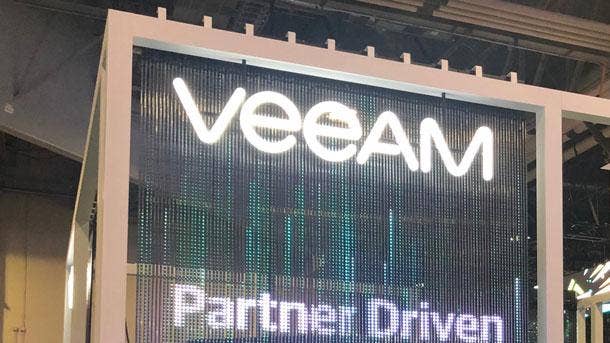
How does Veeam see itself in the market?
Veeam has been very successful in what we call Act One. For the last 10 years, we became the dominant data protection provider for your modern on-prem environment. That was when we released our product back in the beginning of 2008. So for the last 10, 12 years, we have dominated this market, and we became the number-four market share leader. In reality, we believe that we're number one, because in terms of new license and new customers, we're number one, because the various legacy vendors that we compete against--Veritas, IBM, and Dell EMC--most of their revenue comes from renewal contracts, not new customers. Sixty percent of our revenue comes from new customers or new licenses. ...
[But] every 10, 15 years there is a major IT transformation. Now, the transformation is to hybrid cloud. Whoever wins this battle, in the next two or three years, will dominate this market. We believe that we are in great position to dominate the hybrid cloud market. … We believe that we're very well positioned, but right now, this year and next year is going to be critical for us to win hybrid cloud data management in the cloud. We call it Act Two. And we believe three markets are going to be huge: Office 365, AWS backup, and backup of Azure. All native cloud native backups. Each of these markets will become, for us, maybe half-a-billion-dollar opportunities in the next five years.
But at the same time, there will be other companies looking to get that early dominance as well.
Absolutely. But we are dominating VMware and on-prem backups. [For] perspective, today Veeam already, we believe, is the market leader in Office 365 backups. We released the first version in 2017. Last year, we generated under $20 million revenue. This year, we will generate $50 million. Next year, it will be close to $100 million, all subscriptions for Office 365 backup. [But] we will be protecting only 1 million mailboxes. There are 180 million mailboxes. Imagine how huge the opportunity is. That's why we're confident that just Office 365 for us will be at least a half-a-billion-dollar market in the next four or five years. And we do everything through partners.
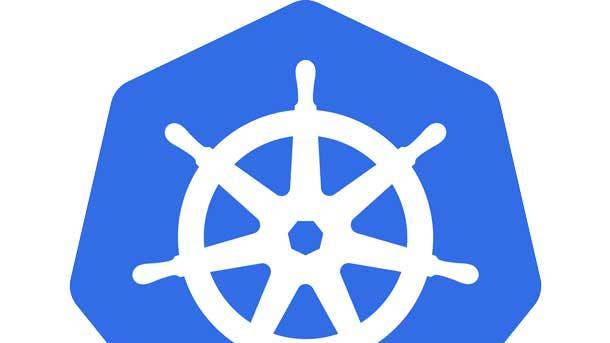
You mentioned at one point that you want to show people why Veeam is the best for data management. Why is Veeam the best for data management?
Because we understand what customers want. We truly understand what customers need. And we have a proven track record of innovation. … Google, Facebook, Microsoft, Apple, they were not the first in their markets. That's very important. When we release features, we're not the first. There is a big issue around Kubernetes. [People ask,] 'When are you going to do Kubernetes?' We will do it at the right time. But the way we will do it is going to be really, really useful, instead of a marketing checkbox. We believe a lot of our competitors rush with the features to be first in the market. ... We're sort of late with cloud-native AWS and Azure backups. We were late with VMware. There were two other vendors that started in 2005 and 2006. We only released our product in 2008. But everybody thinks that we were the first. So it doesn't matter if you are not the first. It's just, if you come up with the better product, brilliant product, which is simple, flexible, and reliable.
So when will you be ready for Kubernetes environments?
We know that everybody's asking us today about Kubernetes backup. Yeah, we're working on it. I'm not saying we don't believe that it's a big market. A lot of customers are asking, but they're not usually in production enough to care about protecting Kubernetes yet. [But] it will change quickly in the next six, 12, 18 months. We don't believe that we need to rush something right now.

If you look at what you want to do with data management, how far along are you? In other words, can you now say that you are a data management provider, or is it a work in progress?
We can say it today, but we believe it's a journey because the needs are always evolving. Data is growing exponentially, 40 percent annually. So data doubles every two, two-and-a-half years. Then the requirement to restore this data increases, because the criticality of data increases. Data criticality increases, data scrawl increases, and the need to restore weekly increases. Plus government regulation--compliance, governance, security. It's a journey. It's never a final destination.
Veeam is still privately held. Any plans for taking the company public?
We are considering that. But no, no plans in the short term.
Is this something you want to do?
Again, we're considering that. But no, no short-term plans.